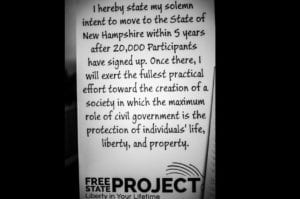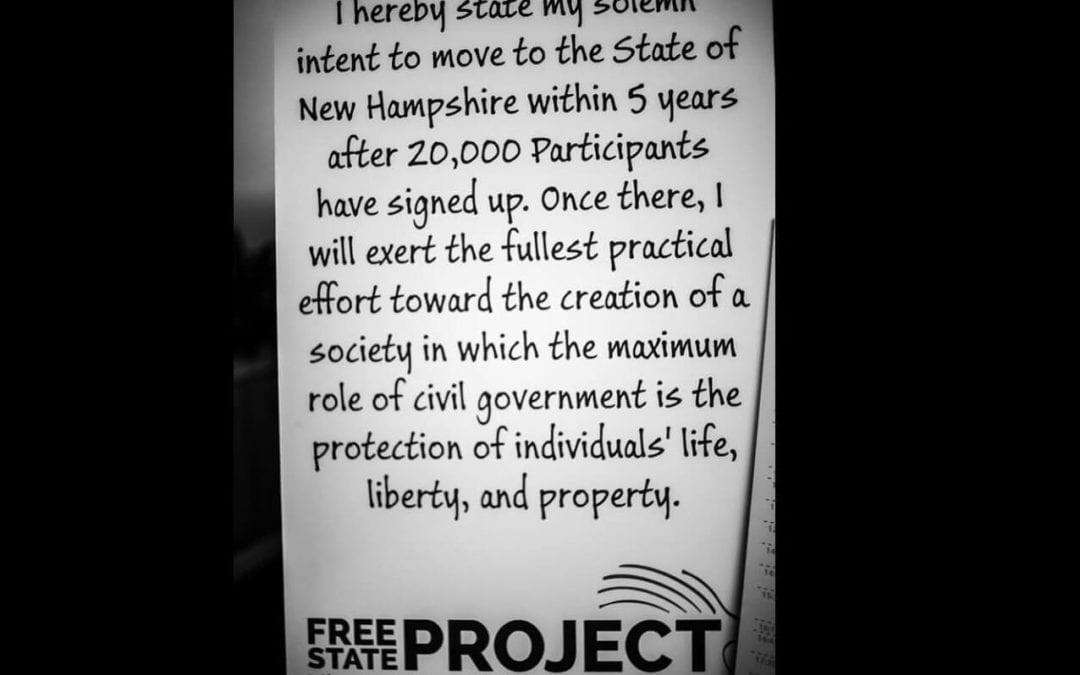 From Forbes, by Kashmir Hill: Long before billionaire venture capitalist Peter Thiel dreamed up the idea of a floating libertarian island nation, a 24-year-old Yale grad student named Jason Sorens proposed a far more down-to-earth experiment for those who wanted to live the limited government lifestyle: that a critical mass of “freedom-loving people… establish residence in a small state and take over the state government.”
From Forbes, by Kashmir Hill: Long before billionaire venture capitalist Peter Thiel dreamed up the idea of a floating libertarian island nation, a 24-year-old Yale grad student named Jason Sorens proposed a far more down-to-earth experiment for those who wanted to live the limited government lifestyle: that a critical mass of “freedom-loving people… establish residence in a small state and take over the state government.”
The “Free State Project” call to action was in 2001. By 2003, five thousand people agreed to take part and they held a vote to decide which low-population state would be the staging ground for the libertarianvasion, which would be triggered when 20,000 people signed on. New Hampshire (population: 1.3 million) won — narrowly beating out Wyoming (population: 576,000) — and early movers began trickling in to help the state fully realize its “Live Free or Die” motto.
Thirteen years later, there are over 2,000 Free Staters scattered around New Hampshire and the petition is now 4,000 signatures short of triggering the full move. The concentration of Free Staters is highest in New Hampshire twice a year, during the group’s two annual gatherings: a Bacchanalian free-market festival called “PorcFest” which is held in the woods in the summertime and an academic-spirited conference called the Liberty Forum, held at a hotel in the wintertime.
I was invited to snowy New Hampshire this February to speak at the latter because Free Staters were interested in two things I write about: Bitcoin and corporate privacy practices. I discovered that this isolated group has fully adopted Bitcoin, and that it’s extremely enthusiastic about other “freedom-enhancing” technologies such as 3D-printers and encryption. Everyone I met in the Project owned Bitcoin and was willing to accept it for goods and services. Of the couple thousand people living there, at least seven own 3D-printers.
Though the idea originally was to get a critical mass to influence the political process, many in the movement now feel that the freedoms they want may be better realized through technology that routes around the government rather than engaging it directly. Read More…

